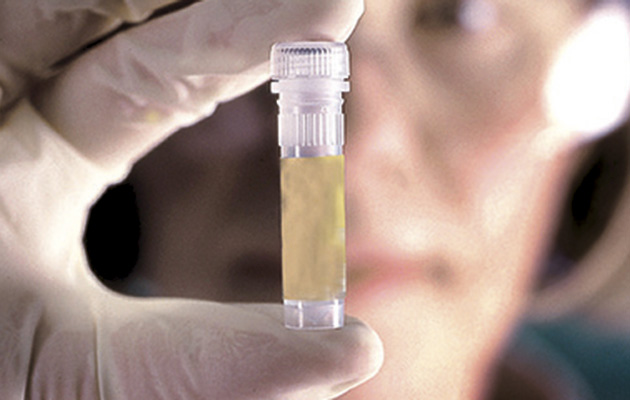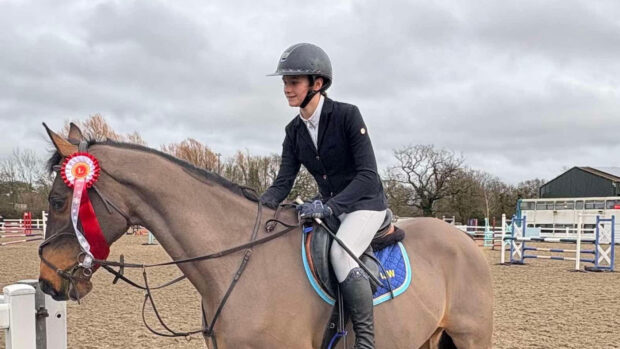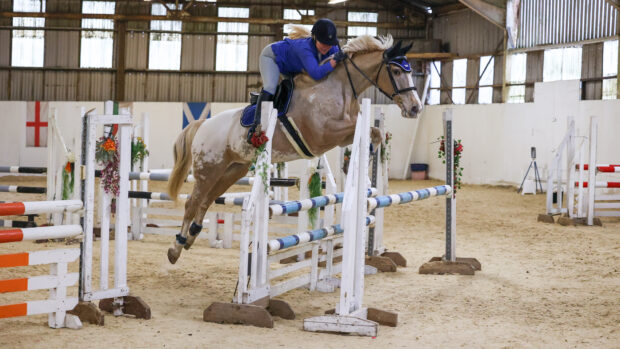The rider of a horse who tested positive for banned substances after she suffered a fatal injury in competition says she did not even know the horse was being tested.
Dutch showjumper Sanne Thijssen’s ride Sara Galotiere had to be put down at the Liverpool International Horse Show on 30 December as she had suffered a broken leg while competing in the CSI4* class.
Sanne told H&H she received a letter last week suspending her for six months as the 11-year-old mare had tested positive for ketamine and altrenogest (sold under the brand name Regumate).
“It was a very strange story,” Sanne’s mother Dorien said.
“When the mare broke her leg, the [FEI] vet gave her painkillers, and she was later put to sleep. When she was on the trailer, no one was allowed to be with her.
“Sanne was so sad, she wanted to stay with her when she was put to sleep but wasn’t allowed, so we don’t know what happened.
“We begged the vet to let her stay. Sanne could handle it as she didn’t want her horse to die alone but they said no.
“The horse was alone, and we don’t know what happened.”
Sanne and her mother said when they received the letter, they consulted vets, who said ketamine is used to anaesthetise horses, as well as being a painkiller, so they believe it may have been given to Sara Galotiere for this reason owing to her injury.
“I don’t know how it got there otherwise,” Sanne said. “Ketamine is an anaesthetic; of course you couldn’t ride on it, it’s stupid to think you could jump a 1.50m class.”
“Vets explained what it was to us and they were laughing,” Dorien added. “They said: ‘That’s stupid, you can’t ride a horse on that’.”
Sanne said Sara Galotiere was also on Regumate, which is allowed under FEI rules for mares with oestress-related behavioural problems, as long as the rider has the appropriate form signed by a vet. She said she did have this form, in the horse’s passport, but that as she was unaware the mare was being tested, she had no chance to provide the document.
“She was dope-tested last July when she was on that and there was no problem,” Sanne said. “Suddenly they’re saying she tested positive for that, but it’s legal and it was signed by the clinic. If I’d known they were testing her, I’d have showed it to them.”
Dorien added that she has never known a horse be dope-tested without a member of the rider’s team present.
“Everything was wrong from the start [in this situation],” she said. “The mare did a lot of good things and worked so hard for Sanne, who loved her, and it ended up like this. If we could have kept her for breeding, or to live in the field, we would have done but there was no chance.”
Sanne is to take the matter to the FEI Tribunal, in an attempt to clear her name.

Showjumper put down after ‘freak accident’ at Liverpool International
A horse has been put down as a result of an injury at the Liverpool International Horse Show

Owner’s hairspray causes showjumper’s positive dope test
The rider and the owner’s wife were unaware he was using the product

Wee warning: horse fails dope test after stable lad caught short
Authorities have warned of the dangers of urinating in stables after the positive test
“We’ve got a lawyer working on it,” she said. “It’s so sad, and then after all the drama, this happens. Something went wrong, for sure.”
The FEI said it was unable to comment as the case is open but confirmed that: “in the event of an equine fatality, samples are taken from the horse”. A spokesman for the show’s organisers said they had not been advised by the FEI of a positive dope test.
For all the latest news analysis, competition reports, interviews, features and much more, don’t miss Horse & Hound magazine, on sale every Thursday.




